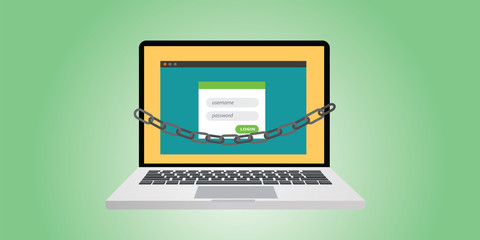Geography is all about people, places, spaces and their interrelations. The internet has made this more globalized and interconnected. Privacy, security, convenience and freedom of expression all come into play.
One of the issues I believe is convenience vs privacy. The increasing amount of data in the personal form, like credit card numbers, bank account numbers, names, addresses, health cards social insurance numbers, to name a few. This data is kept by private retailers, government agencies, hospitals and employers. Because all this information is out there, there, is a big risk of breaches of privacy. It can be spread in an instant to millions of people. Not only personal data but even compromising photographs.
The other issue is the security vs privacy. And in some cases the ethics behind this can be clear-cut and other times what is fair can be very murky. Malware that can be used to hack into private computers and steal passwords and credit card numbers has been outlawed in most countries and is called cyber-crime. Almost everybody would say this malware is wrong. But the other side of the issue is that of hacking for good. Good hackers have been threatened with prosecution for tying to expose security weaknesses in millions of private networks and computers and fixing them. What the intentions of the hackers are is important in deciding what is ethical.
Social media is an area that is dubious when it comes to ethic issues. The information taken from social media sites is given out voluntarily but I could be used form data mining with other websites. Viruses can be used to break into the personal data of social media timelines and photos by third parties. Portraits of them or their friends could be use against their will by these third parties in advertising. Or someone maliciously putting the entire content of a user’s social media wall shared publicly when the user enabled the privacy settings. This could compromise future employment.
Social media companies as well as software and search engine companies have been involved in government surveillance. A very contentious issue. The program PRISM was a top secret NSA (the American CSE) surveillance program, identified by contractor Edward Snowden. By Court order (courts are supposed to be a check on the state) these companies would hand over personal data to the NSA. Snowden claimed this was illegal because mass amount of people that were being spied upon were not under any suspicion. The CSE (Communications Security Establishment) was involved in similar programs and Bill 51 that was brought about by the conservatives to share information with many government institutions collected by the CSE (ex. Canada Revenue, RCMP, National Defense).
These things have brought about people using proxy servers to make the location of their computer unknown and therefore anonymous. Which some feel is good because in a democracy the government is the servant of the people. And officials must follow the same laws as ordinary citizens. Although being anonymous online has created “Doxxing ” where people hack into personal information and post it online (for ex. Pastebin) without any body being able to locate the offender. The best example of this is the Ashley Madison security breach. Internet anonymity can have it’s bad side.
The internet age came out in 1991 so governments tried to take advantage of the eavesdropping opportunities. And more openly after 9/11 ten year late with the Patriot Act in the U.S. But the Five Eyes’ Governments (UK,US, Canada, Australia and New Zealand) got their hands caught in the cookie jar after the Snowden revelations, alienating not only many of their citizens,(some citizens support the surveillance) but governments and peoples of many allied countries such as France and Germany. The intelligence gathered with these countries was not very valuable but the political damage created getting caught was great. Many people think the pendulum has gone too far in the name of security. I think society is going to lean toward privacy in the future.
The privacy online issue affects many people by them having more stringent privacy settings in their social media settings and only giving out credit card information to trusted sites. Also many internet users sometimes use search engines that don’t track and record their key word searches and browsers that stop tracking and don’t reveal the users physical location.
